In 1977, Judas Priest threw their fans a sharp-breaking curveball with a hard-rocking cover of Joan Baez’s “Diamonds and Rust,” released by her two years prior. The initial thought may have been that Priest was goofing—the original song was so out of their genre, so identified with a relationship Baez had had with Bob Dylan. But it quickly became clear they were reconfiguring it, putting this song of loss and bittersweet reflection on their own fierce terms. And it worked.
Really well.
So, when talking with Baez, we couldn’t help asking what she thought of Priest’s version.
“I love it!” she said, on the phone from her Northern California home. “I listened to it the other day because it popped up [on a playlist]. Of course, I don’t write ‘cover’ kind of songs so having that covered was a big thrill for me.”
And, perhaps, it earned the singer-songwriter just a bit of unexpected cash. “I haven’t thought about it,” she said, with a laugh. ’I’ll have to check.”
Baez, born Jan. 9, 1941, has been with us on the folk scene—sometimes crossing over into the pop/rock world—since playing the Newport Folk Festival in 1959, “at the beginning of time, before they made guitars,” she once joked.
Baez recorded her eponymous, soon-to-be-reissued debut album the following year and became one of ’60s music’s icons of activism alongside her famous one-time boyfriend, Dylan. While she’s written songs, she’s best known as an interpreter—bringing others’ music to higher public awareness—and in 1971 she scored her only top 10 hit single with the Band’s “The Night They Drove Old Dixie Down.”
Watch Joan Baez sing “The Night They Drove Old Dixie Down” on The Midnight Special
Dylan still plays a part in Baez’s life—his music, not him personally. In the interview that follows, she talks about putting Dylan baggage aside, relearning to love the man’s music via her portraiture. In 2012, Baez started painting seriously—she’d been doing it since she was a kid—and had an exhibit in San Francisco last year called “Mischief Makers.” She painted portraits of Martin Luther King Jr., her ex-husband David Harris, John Lewis, Harry Belafonte, Vaclav Havel, herself and, yes, Dylan.
When we spoke in 2018, Baez—backed by multi-instrumentalist Dirk Powell, percussionist Gabriel Harris and singer Grace Stumberg—was in the midst of her farewell tour, in support of her new album, Whistle Down the Wind.
Listen to the title track from Whistle Down the Wind
Best Classic Bands: You’ve been very upfront lately about your voice, the changes it’s gone through, the work you’ve had to do.
Joan Baez: The vocal cords are just difficult. When someone first saw me at Newport I didn’t know what a vocal coach was from a hole in the ground. Then, I always had this image of myself as this Miss Natural Talent so I’m sure I waited to get help until way too long, and that hasn’t helped the decline of the muscle. But I’m happy, by the way, with what I have.
How have you adjusted?
First of all, someone finally convinced me to get down off my high horse and go see a vocal coach because things weren’t happening the way I wanted them to happen. I was 35 and I’ve done it ever since. Some of the coaches have changed, for different reasons. The most important one, I think, was the first one because he was classically trained and just wonderful and opened up a whole other tool box for me.
Then, he passed on and I did several other people and about six years ago I was thinking, “Oh boy, this is the end, I can’t pull this together,” and [I saw] an ENT guy, and said, “Maybe there’s something interfering with whatever—warts on my chin or something.” And, he said, “No, everything was fine.” And I said, “So, this is it for 71?” and he said, “This is perfect for 71.” I said, “I’m going to shoot myself,” and he said, “Would you like to see my vocal therapist?” So, I said “Sure.” This woman was young and she’s amazing and I see her once every three or four months. The first three sessions she gave me this amazing amount of tools that I didn’t know about, that I didn’t have, and [my voice] was recognizably different by the time I was on the road later. I’m comfortable and happy. I’m not trying to reach notes that I can’t reach anymore and I’m not grieving about it. I’m working on what I have, which I like a lot.
You’re now in the midst of a farewell tour. What made you think now it’s time to hang up the guitar?
It’s more me hanging up the bus. It’s more the extended get-up-in-the-morning, get-on-the-bus and go-to-the-show. Sometimes you get very tired. And for sure the vocal cords are just difficult. I love the new album and I love the concerts, but it’s taxing.
What adjustments have you made in concert?
I had to give up certain songs I hate giving up and one of them was [Dylan’s] “Forever Young.” The woman who sings with me, Grace [Stumberg], she’s young and she’s brilliant and she’s fun. The sound man said, “Why don’t you let her take the high note?” So, we made this beautiful duet out of it. No one’s going to care who’s taking that high note. It came out brilliantly.
You brought up “Forever Young” so I’ll risk your “Time Rag’ wrath by asking about Bob … [Baez wrote the song “Time Rag” in 1977 about Time magazine interviewing her and only really wanting to know about Dylan.]
I don’t have that anymore. [laughs].
Whew. You’ve been doing half-a-dozen Dylan songs in concert. What motivates you to do so?
It’s just the easiest, the most fun and most people react to it in a certain way. In a way, it’s the closest thing we have to a movement when you sing something like that [Dylan anthems]. There’s such a response from the public and such a response from me. It comes from down in my gut somewhere. Actually, after all the BS over the years between me and Bob…I never knew how he felt but I started doing his portraits. By the second portrait, I put on all his music randomly and I just cried. I thought “Good lord, what am I carping about? I got to know this guy. I got to sing with this guy.” Any stuff that was still left vanished. Anything that was resentful or stupid just went. What a treat was that.
You sing those songs a whole lot better than he would if he chose to sing them today, which he mostly doesn’t.
That’s true. I think hearing “The Times They Are A-Changin’” sung at the kids’ march—the students from Parkland [High School]—and hearing that sung by a younger person, I thought, “Was that the only thing they could find?” Because the youth at this point does not have an anthem that really competes with that in any way, shape or form. That tells us a lot about those songs. I love doing those songs and no longer have a problem with how many Bob Dylan songs I sing in a set. I’ll sing all I want.
Listen to Baez and Dylan duet on “With God on Our Side” at Newport in 1963
Many people identify you with idealism and hope. Have you found any sort of equilibrium between the darkness of today and idealism?
Yeah, you have to or I wouldn’t bother getting up—and some mornings I don’t. But I think the trick right now is the we-shall-overcome-this-in-us has to be sort of like the Parkland kids. They know what it is they want to overcome. Now, that’s a possibility. And I think they get our support. I think the people who are doing work with refugees all over the world, in different cases, you pick your level of success and [try to] live up to it. You have overcome that much, just to think in the broad sense and in the long sense.
You were inducted into the Rock and Roll Hall of Fame last year. Some people said, “Joan Baez? Rock ’n’ roll? Isn’t she a folk singer?” What did it mean to you?
Well, it was either “What am I doing here?” or “Why the f**k did they wait so long?” Somewhere in between those.
Back to the ’60s, the cartoonist Al Capp, who had “L’il Abner” in hundreds of newspapers, made you into a character, an object of parody. Do you remember that?
Oh my god, vaguely. [He called me] Joanie Phoney.
It’s kind of a laugh now, but back then? Did it hurt?
No. I had two things [going on]. One was the people who were around me. I was still suggestible at that age and they were saying “You can’t let him get away with that!” In my head, a voice was saying, “Why not?” I didn’t really care. But the influence from the outside was really stronger and I got myself all irate about it, but really it was not a big deal for me. I felt that my manager [Albert Grossman] had been more insulted than I had. They depicted him as a money-grubbing Jew.
Well, when the other side goes after you…
You’ve done something right.
Music and politics are intertwined through your life and music. Where do they fit now?
I think as long as we maintain a high bar of deniability and practically no expectations, they are a part of all of our lives in a way they never have been before.
Some people might say you’re singing to an echo chamber, but while it may be true to some extent, you are building a sense of community.
There is a community. Exactly. So, “You’re singing to the choir”? You bet I’m singing to the choir; those are the ones who start to march.
Baez’s extensive catalog is available in the U.S. here and in the U.K. here.
Watch Joan Baez sing “Diamonds and Rust”

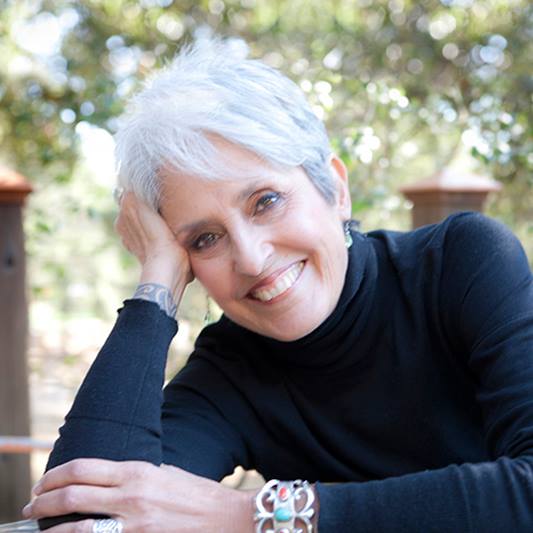
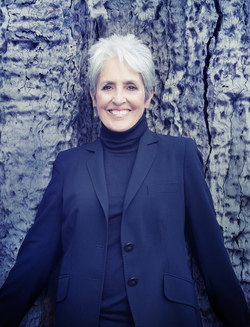
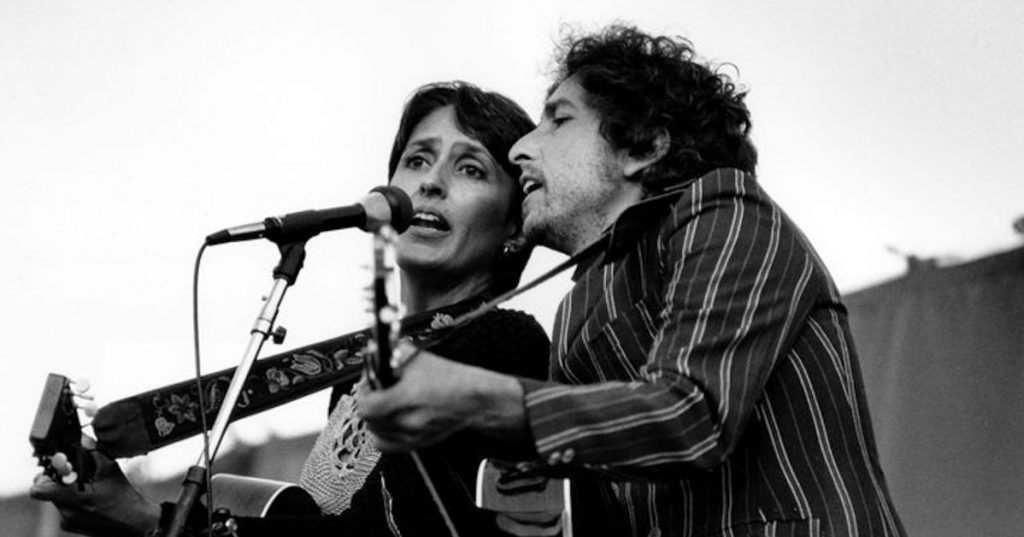
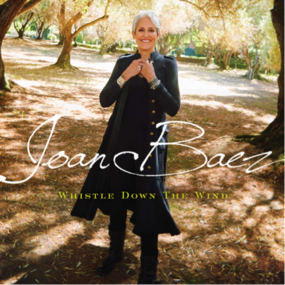

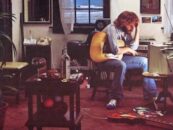

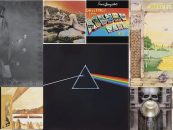

6 Comments so far
Jump into a conversationJoan Baez is probably the most gifted and intelligent person in popular music.
Can’t remember the name of my favorite Joan Baez album from the ‘60’s. Had these songs. Joe Hill, We Shall Overcome, With God on My Side, Black is the Color of My True Loves Hair. Anyone know the name of the album?
Try discogs.com
Donna,
You could review that specific information along with even greater details about Joan Baez on AllMusic.com. Their bio and discography listings should prove very useful. Enjoy!
Thanks for this article. Have been singing JB since D&R came out. Saw her in Morristown NJ where she brilliantly spotlighted Dave Carter & Tracy Grammer. Fell in love with D&T and mourned Dave’s passing. This summer, 2022, fell in love with Dylan for the 1st time. Realized I had been singing HIS songs, too, since I was 10. Have Joan’s newer recording of D&R where she changes the end: “If you’re offering me D&R, slight pause, “well I’ll take the diamonds.” as my daughter says, “dead.” I love them both. J&B. They should get together now. They would laugh and sing til death do them part. Maybe I’ll write THAT song!
I grew up w/ BOB & JOAN both individually and together, was thrilled by both, individually & together…thought they made a great couple, the master & mistress of folk music, @ a time of great political upheaval, war & civil unrest and racism…I suppose Bob, and think I read somewhere as well, felt he needed to present himself separate from Joan…as an independent artist, but OMG, Joan was beautiful in looks, and strength and soul and voice, the female spiritual voice and icon of 60’s and beyond to this day…listening to her voice and songs is like hearing truth from an angel..one time, in addition to all songs and albums of hers I own, I found her 3 cd set RARE LIVE & CLASSIC @ Library, came home, played it over and over again, and it was/is such a powerful, sweet, heavenly, healing mix of tunes…like a visit from an angelic being in your room with you, the beauty washing over under around and thru you…I would recommend any and all of her music to anyone not familiar with her music, but that 3 cd set might just be a great 1st place to start…I love Joan Baez, admire her as a very rare woman and voice and right person @ right time, both then bk in the day to now…the female voice of my generation, and all generations too..LOVE RESPECT GRATITUDE AND HONOR TO HER!